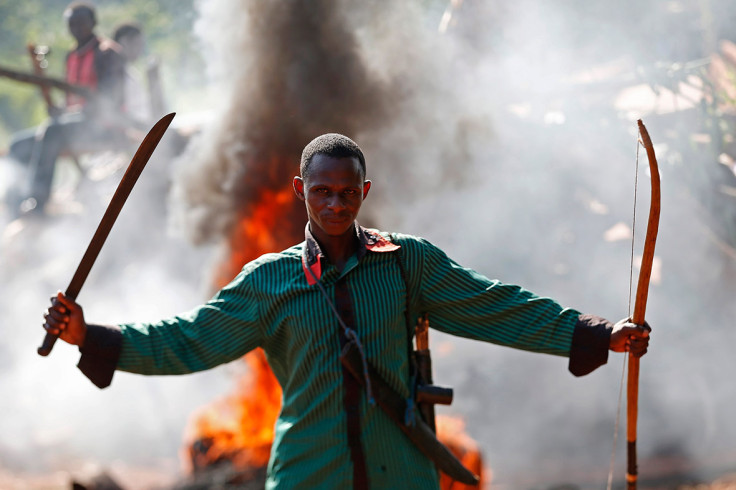In Focus: Central African Republic will 'not hold democratic election any time soon' as violence continues
Central African Republic (CAR)'s interim president Catherine Samba Panza announced the postponement of a presidential election following renewed violence that left dozens of people dead in the capital Bangui.
IBTimes UK spoke with James Schneider, senior correspondent at the New African Magazine, on the causes of the conflict amid warnings that the country might descend into civil war due to the prolonged tit-for-tat violence carried out by militant groups.
The CAR conflict erupted when former president Francois Bozize was overthrown in 2013. As a result of the political unrest, Muslim Seleka and Christian anti-Balaka militias have engaged in violence that killed thousands of people and prompted hundreds of thousands to flee their homes. The brutal ethnic cleansing has been strongly condemned by NGOs. Amnesty International has also accused peacekeepers of failing to prevent the conflict.
The then president Michel Djotodia – who replaced Bozize following the coup – was forced to resign in January 2014, as he was accused of being unable to halt the unrest. He was replaced by Catherine Samba Panza, deemed as politically neutral. After winning the presidency Samba-Panza urged the warring sides to end the fighting: "I call on my children, especially the anti-Balaka, to put down their arms and stop all the fighting. The same goes for the ex-Seleka – they should not have fear. I don't want to hear any more talk of murders and killings,'' she said.
Her election, however, did not halt the violence and civilians, including children, are routinely killed by the two factions. Several NGOs and the UN have repeatedly warned of the risk of a genocide in CAR, which "has all the elements that we have seen elsewhere, in places like Rwanda and Bosnia". An investigation on war crimes by the International Criminal Court is ongoing.
In the latest episode of violence, some 42 people were killed in Bangui in retaliation to the killing of a Muslim motorcycle taxi driver earlier in September. Anti-Balaka members attacked a prison in the capital freeing more than 500 prisoners, most of them part of the Christian militant group. The UN called for an immediate end to the "unacceptable violence".

© Copyright IBTimes 2025. All rights reserved.






















